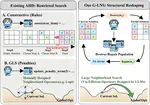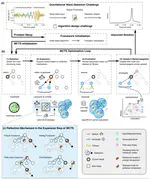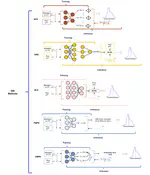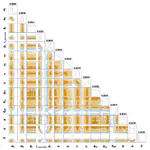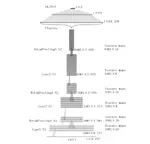He Wang
Research Associate
International Centre for Theoretical Physics Asia-Pacific
University of Chinese Academy of Sciences
Summary
Hello, I’m He Wang (王赫), currently a Research Associate at ICTP-AP, University of Chinese Academy of Sciences (UCAS) since 2024. My main research interests lie in gravitational wave data analysis. Previously, I completed my Ph.D. at Beijing Normal University in 2020.
Scientific research is both challenging and rewarding, and I am committed to persevering through all difficulties. I especially enjoy sharing insights from my work, particularly in Gravitational-Wave (GW) data analysis and Machine Learning (ML).
Through this blog, I hope to foster an open and engaging platform for learning, curiosity, and exchange, in both Chinese and English. I am gradually enriching the content and look forward to building a unique perspective over time.
I am inspired by S. Chandrasekhar, who once said, “I have the urge to present my point of view ab initio, in a coherent account with order, form, and structure.” Guided by this spirit, I strive to continuously learn and share, regardless of obstacles.
I hope this website reflects my dedication to research, ongoing growth, and a persistent passion for discovery and collaboration.
My scientific work has followed a certain pattern motivated, principally, by a quest after perspectives.
我的科学研究工作遵循了某种模式,它的动因主要是寻找观点。
How to comment
With use of the hypothes.is extension (right-sided), you can highlight, annote any comments and discuss these notes inline at any pages.
Please Feel Free to Let Me Know and Share it There.
Experience
Engaged in advanced research on AI-based data analysis methodologies tailored for both ground-based and space-based gravitational wave detection.
Specific projects include:
- Developing AI-driven software packages for enhanced data processing in ground-based gravitational wave detection.
- Formulating global fitting algorithms for parameter estimation in space-based gravitational wave detection, utilizing AI techniques.
- Leveraging large language models (LLMs) to optimize algorithms for gravitational wave data analysis, enhancing computational efficiency and analytical accuracy.
Focused on the integration of AI and machine learning technologies for noise reduction and signal detection in gravitational wave research.
Key contributions include:
- Utilizing pre-trained models from natural language processing to expedite signal detection and enhance noise suppression in ground-based gravitational wave detection.
- Developing fast parameter estimation algorithms based on normalizing flow models for space-based gravitational wave projects.
Researched and developed methodologies for the rapid detection and inference of gravitational wave signals using deep learning approaches, focusing on:
- Employing normalizing flow models for efficient and accurate gravitational wave signal inference.
Teaching
Featured Publication
License
本站点内容系本作者原创,如有任何知识产权、版权问题或理论错误,还请指正。 转载请注明原作者及出处,谢谢配合。
The content on this site is original work by the author. If you identify any intellectual property, copyright issues, or theoretical errors, please feel free to point them out. For reprints, please acknowledge the original author and source. Thank you for your cooperation.
